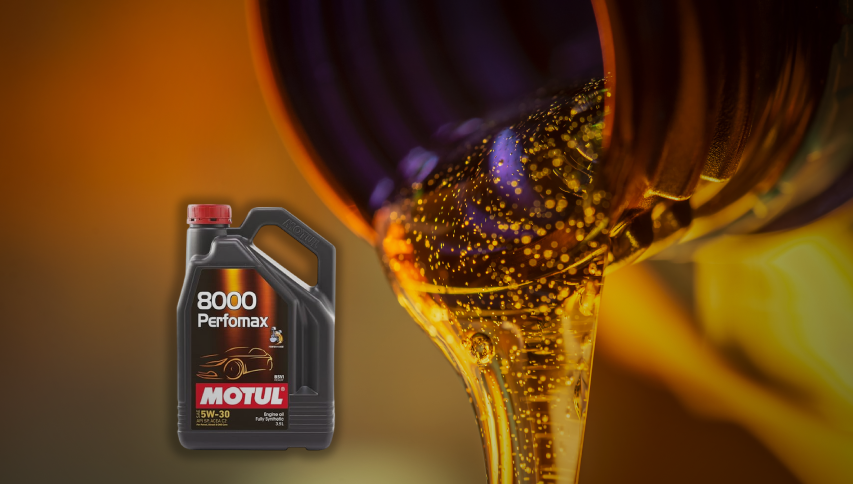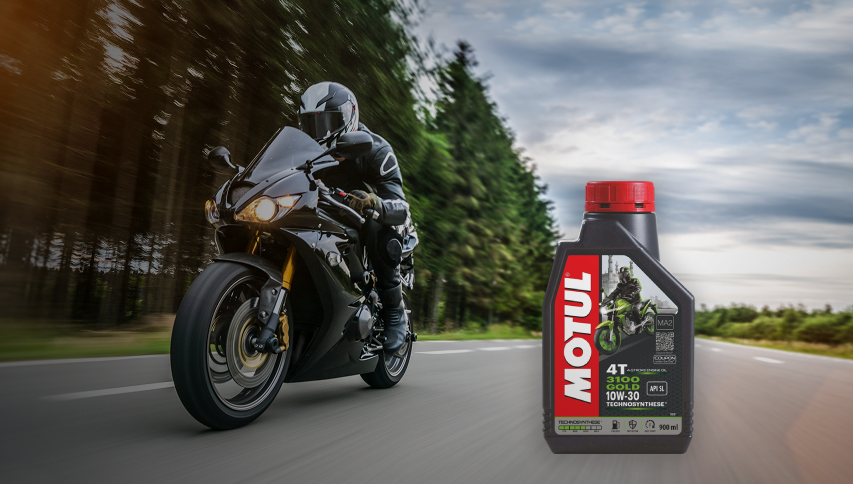Engine Oil Viscosity Grades Explained: Which One Works For You?

The engine is the heart of your car or motorbike, and engine oil is its what keeps it pumping. But with so many different oil grades available, choosing the right one can feel like deciphering a secret code. Fear not! This guide dives into the world of engine oil viscosity grades, empowering you to select the perfect Motul oil for optimal engine performance and protection.
What is Engine Oil viscosity and why does it matter?
To put it quite simply, viscosity in engine oil is its thickness and how easily it flows at different temperatures. Engine oil products are offered in various grades of viscosity to meet the requirements of different engine types across various weather conditions. Thinner oils (lower viscosity) flow more readily, crucial for cold starts. Thicker oils (higher viscosity) provide a robust protective film at high temperatures.

Understanding the Viscosity Grading System
The Society of Automotive Engineers (SAE) established a viscosity grading system that simplifies oil selection. Every engine oil product across all brands follows a naming convention that is denoted by the viscosity grade and operating temperature. For instance, Motul 300V 4T 10W30 engine oil. Let’s break down how to read this nomenclature.
- The “W” figure represents low temperature viscosity (winter): The number before “W” indicates the oil’s cold-flow performance. Lower numbers (0W, 5W) represent better flow at cold temperatures, ensuring easier starts and quicker oil circulation.
- The number after “W” represents high-temperature viscosity: This number signifies the oil’s thickness at operating temperatures. Higher numbers (30, 40) indicate thicker oils that provide superior protection for hot engines.

So, a 10W40 engine oil is good for moderate climates, offering decent cold-flow and strong high-temperature protection. Subsequently, A 5W30 engine oil flows better at cold starts but might not be ideal for scorching summers or high-performance engines. For Indian Roads, engine oils with high viscosity grades tend to be more common due to the higher temperatures under which vehicles operate. For instance, the Motul 7100 4T 20W50 engine oil is common in Indian cities that do not see temperatures below 20 degrees celsius in winters but often see 35-40 degree summers.
Choosing the right viscosity grade for your car or motorbike: Key considerations
Choosing the best engine oil for bikes or cars largely depends on the Viscosity grade your engine requires, which in turn is dependent on various factors such as:
- Climate: Consider your region’s temperature extremes. Colder regions benefit from lower “W” ratings (0W, 5W) for easier cold starts. Hotter climates might require slightly thicker oils (10W-40, 15W-50) for better heat resistance.
- Car or motorbike? Motorcycle engines typically run hotter and rev higher than car engines. They might benefit from a slightly thicker oil in the second number (e.g., 10W-40 vs 5W-30) for superior high-temperature performance.
- Your car’s manual: Always refer to your car or motorbike’s owner’s manual for the manufacturer’s recommended viscosity grade. This considers your specific engine type and ensures optimal performance.
- Driving habits: If you engage in stop-and-go traffic or high-performance driving, a higher viscosity oil (e.g., 10W-40) might be better suited for the increased heat and wear.

Motul can be your trusted partner for Engine Oils
Motul, a leading name in high-performance lubricants, offers a wide range of engine oils with varying viscosity grades to cater to diverse needs. Whether you drive a car in a cold climate or a high-performance motorbike, Motul has the perfect oil to keep your engine running smoothly and protected. Motul offers solutions across various engine oil prices and cater to a large, mainstream market in India.
Our innovative technology ensures exceptional flow characteristics across temperatures, minimizing friction and maximizing power output. Motul’s engine oils are formulated with premium synthetic base stocks and advanced anti-wear additives, extending engine life and ensuring peak performance, mile after mile.
Engine oil viscosity plays a crucial role in your engine’s health. By understanding viscosity grades and considering your specific needs, you can choose the perfect Motul oil to unlock optimal performance and protection. Visit your nearest authorized Motul dealer or explore our website to find the oil that perfectly matches your car or motorbike, and experience the Motul difference!







